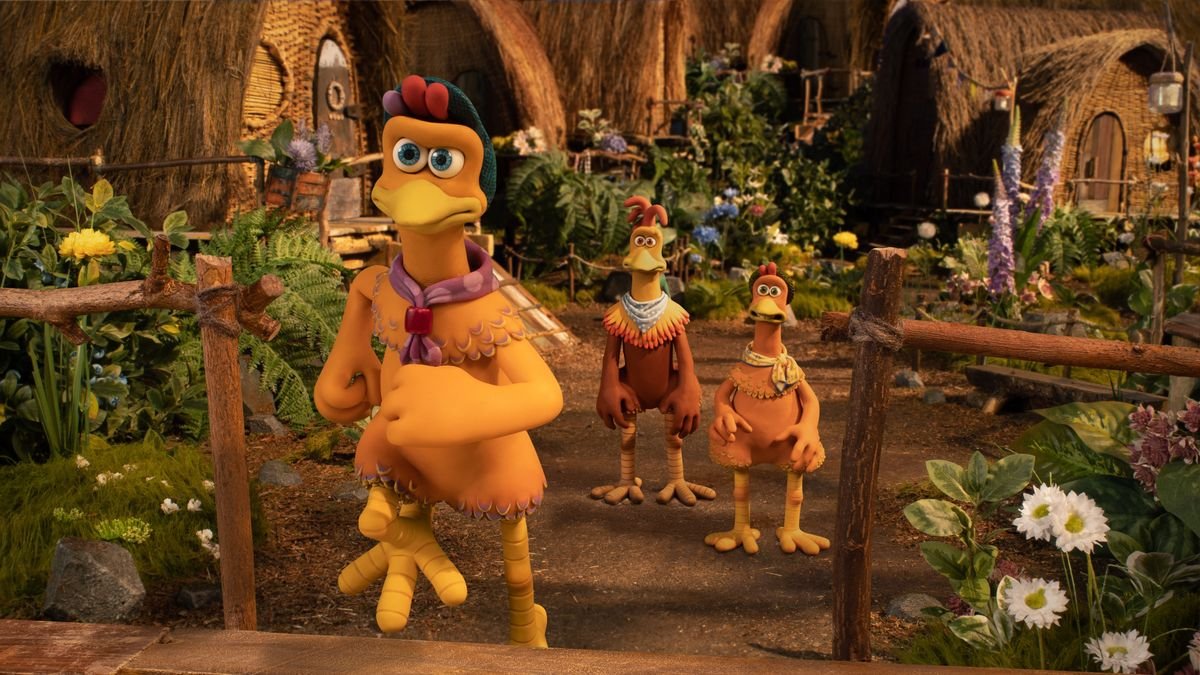Review: The Beast (2023)
Like so many European science-fiction films, such as Claire Denis’ High Life, The Beast isn’t all that interested in the genre outside of its ability to free the story from the confines of reality. But that’s as much a feature as a bug for this bizarre dystopian love story, which alternates between skewed, almost tacky, visions of the future and sweepingly emotional historical scenes. It’s not entirely successful as a unified story, but it has a compelling artistic approach and makes for a fascinating watch.
Inspired by Henry Miller’s novella, A Beast in the Jungle, Bertrand Bonello’s film follows Léa Seydoux’s Gabrielle. Living in a near-future dystopia, Gabrielle undergoes a procedure to purge herself of unpleasant emotions, which requires her to relive sad memories from her past relating to a love affair with George Mackay’s Louis (best known as the protagonist in 1917). Think of it as a variation on Eternal Sunshine of the Spotless Mind (another sci-fi film made by a Frenchman), but instead of just reliving memories of a painful past, she also relives memories of her past lives. The film is distinctly French, but its worldview is techno-Buddhist, with an AI-dominated future (Canadian filmmaker Xavier Dolan voices the AI system that recommends Gabrielle’s procedure) leading to a purging of our emotional human past.
As is evident from this description, The Beast has an intriguing concept, but its skewed vision of a future world isn’t entirely credible in its tactile details. Aspects of its post-catastrophe future, filmed in an eerily empty Paris, are intriguing and suggest a collision of environmental collapse, rampant pandemic, and AI overthrowing human supremacy. For instance, characters refer to governmental breakdowns and wars. They spend time outdoors, but always wear gas masks. There are few people, but they all seem to lead relatively comfortable, if emotionless, lives. But the world hardly seems lived-in, especially in the way that we’ve grown accustomed to from the big-budget science fiction spectacles of George Lucas, Ridley Scott, and Denis Villeneuve.
To be fair, The Beast is not a big-budget spectacle, but it’s also not a small film as it has huge ambitions. It spans different time periods, tells a story with global implications, occasionally follows wild artistic detours, and wants to sweep us up in the romance of its storytelling. But it’s also deliberately distancing at points, alternating between off-putting meta commentary and shockingly earnest romantic moments.
There are echoes of Jean-Luc Godard in moments of the film: an early scene where Dolan’s disembodied AI tells Gabrielle to undergo the procedure plays almost like an interrogation and recalls the guttural, mechanical voice that haunts Alphaville. Other moments approach cinematic storytelling almost as Leos Carax would: as a metatextual game. The film opens with Léa Seydoux against a green screen acting out the directions of an off-screen director voiced by Bonello himself. You can’t tell whether it’s Seydoux the actress or Seydoux the character, because there’s no context. This lack of context forces us to question the veracity of the moment, which makes us skeptical of what comes after. But such skepticism seems to be the point, as we’re supposed to question the entire procedure that Gabrielle undergoes. The AI claims to have the best intentions for humanity, but it’s a shadowy entity that is ultimately unknowable, like the director of a movie manipulating his actors for his own amusement.
What does it all amount to? An appealing mess, well-acted, boldly envisioned, but not entirely convincing. When the film digs into the memories, it’s sweepingly romantic, dangerous, alluring. Seydoux is exceptional, modulating her performance as needed, alternatingly vulnerable and steely, alluring and incensed, always gorgeous and compelling on screen. Mackay is surprisingly good too. They play well off each other, testing each other, sparring lightly with wit and shifting languages and double meanings. The 1910 sequences draw on Henry Miller’s novella the most, so it’s no surprise these moments register the strongest. The mix of memory and meet cute, with Seydoux and Mackay slipping between French and English (their use of one language or the other sometimes aligning with the very cutting between shot reverse-shot), is playful and meta in a way that recalls Tom Stoppard’s Rosencrantz and Guildenstern Are Dead, with characters playing out a script and commenting on their lives which they’ve already lived (and seem to half-notice they’ve done so).
But the science fiction elements are fairly rote and unconvincing. Bonello is not alone in being unable to master science-fiction. It seems most European arthouse directors can’t do it. Apparently, they’re too refined to let their id flow and unleash the imagination like the wildman Luc Besson. At least The Beast is high concept, bold, invigorating. It’s a film of vision, if nothing else.
6 out of 10
The Beast (2023, France)
Directed by Bertrand Bonello; written by Bertrand Bonello, based on a story by Bertrand Bonello, Guillaume Bréaud, Benjamin Charbit, based on The Beast in the Jungle by Henry Miller; starring Léa Seydoux, George Mackay, Guslagie Malanda, Dasha Nekrasova.



The best part of the Road House remake is Jake Gyllenhaal, who makes his bouncer-warrior another one of his dark loner characters.